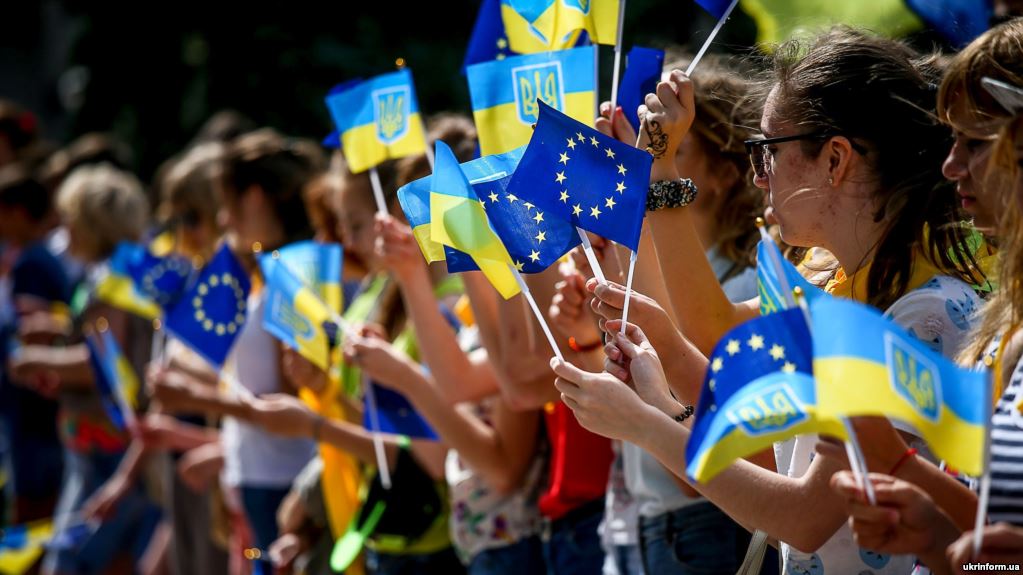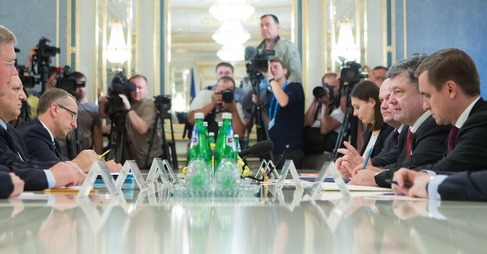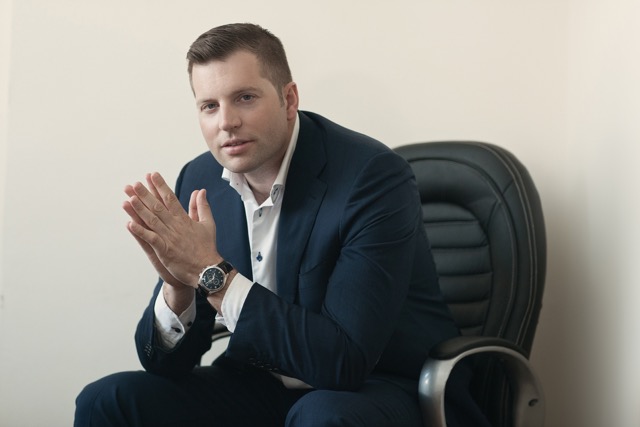On 1 September 2017, the Association Agreement between the European Union and Ukraine enters fully into force.
The Association Agreement, including its Deep and Comprehensive Free Trade Area (DCFTA), is the main tool for bringing Ukraine and the EU closer together: it promotes deeper political ties and stronger economic links, as well as respect for common European values. The DCFTA provides a framework for modernizing Ukraine's trade relations and economic development by opening up markets and harmonizing laws, standards and regulations with EU and international norms.
The Association Agreement was negotiated between 2007 and 2011. In November 2013, the Euromaidan protests erupted after then Ukrainian President Yanukovych backtracked on finally signing the Agreement. After several months of protests, which ended in more than a hundred protesters being shot by the riot police, Yanukovych and his associates fled, and a provisional government entered into force. The Agreement was signed on 21 March and 27 June 2014. However, the process of its entrance into force was delayed in April 2016 by a non-binding referendum in The Netherlands, in which 61.1% of those who showed up to vote voted against ratification, with a low turnout of 32.2 percent. Although the referendum was non-binding, the Dutch political establishment decided they needed to "take the outcome into account" and produced a declaration which noted that the reaty does not guarantee EU membership to Ukraine, and that the Netherlands is not obliged to provide Ukraine military assistance. After this step, which addressed the concerns of the "No" camp, two-thirds of the Dutch senate voted for ratification of the EU-Ukraine Association Agreement on 30 May 2017. It was finalized by the EU on 12 July 2017.
Substantial parts of the Association Agreement have been applied provisionally since 1 November 2014 and 1 January 2016 for the DCFTA.

Commenting on the final entry of the EU-Ukraine Association Agreement into force, President of the European Commission, Jean-Claude Juncker
, said:
"Determination is a virtue. Today, in spite of all the challenges, we have made it. With the entry into force of the Association Agreement with Ukraine, the European Union is delivering on its promise to our Ukrainian friends. I thank all those who made it possible: those who stood on Maidan and those who are working hard to reform the country for the better. This is a day of celebration for our European continent."
Federica Mogherini, High Representative of the European Union for Foreign Affairs and Security Policy and Vice-President of the Commission, said:
"Today we finally achieve what we have been working on in the last years: a closer association between the European Union and Ukraine. This means closer ties between our citizens, bigger markets and more opportunities for businesses and entrepreneurs, increased sharing of experience, information and expertise. It shows that we share the same objectives and that the Ukrainian people can count on the European Union's support and cooperation for the years to come."
European Commissioner for European Neighbourhood Policy and Enlargement Negotiations Johannes Hahn said:
"Generations of Ukrainian citizens to come will reap the benefits of closer association with the EU. The first concrete results of implementation of the Agreement can already be seen: Ukraine's exports to the EU have increased and the EU has confirmed its position as Ukraine's first trading partner. Ukraine's recent reform efforts have been unprecedented, while much work remains such as in the fight against corruption, which must be pursued. The European Union will continue its support for Ukraine's reform efforts, with both expertise and financial support."
And on 13 July 2017, EU Council President Donald Tusk said:
"Today I can see clearly that you will not be defeated by an external enemy. You are too strong. You can only be defeated by yourselves. This is why you need to keep your unity at any cost, and avoid like the plague internal conflicts. I always repeated this to my compatriots when I was Prime Minister of Poland, I repeat this now to the whole of Europe: only united can we overcome the challenges of modern times. There is nothing worse than the break-up of a community in the face of modern-day threats. Democracy is about differences of opinion and competition, but also about permanent looking for consensus. Therefore, your most important task should be to build a modern state that is citizen-friendly, resistant to corruption, respectful of the highest standards of public life. If you pass also this exam, nothing and no-one will defeat you."
Meanwhile, Ukrainian Vice-Prime-Minister for European and Euro-Atlantic Integration of Ukraine Ivanna Klympush-Tsintsadze
"The majority of changes implemented in the framework of the Agreement have a broad and fundamental nature, and can't give a quick, easily visible result. Despite this, they will bring cardinal changes into our lives. Step by step, year by year. And, probably, the government's largest challenge (and one for the civic society also) is to explain these changes and prove their necessity. [...] What does the entry of the Agreement into force mean? By implementing it, we establish procedures and rules that make our country interoperable and competitive with one of the most progressive parts of the world."
More about the EU-Ukraine Association Agreement:
- EU-Ukraine free trade agreement, one year after: trade grows by 10%
- The Association Agreement, Ukraine and the EU: A Marriage Contract in Pictures
- Size matters: why Dutch businessmen like Ukraine
- EU-Ukraine Association Agreement supported by 87% of MPs | Interactive map
- Association agreement: Ukraine’s chance to come home
- What will Ukraine gain by ratifying the EU agreement?





